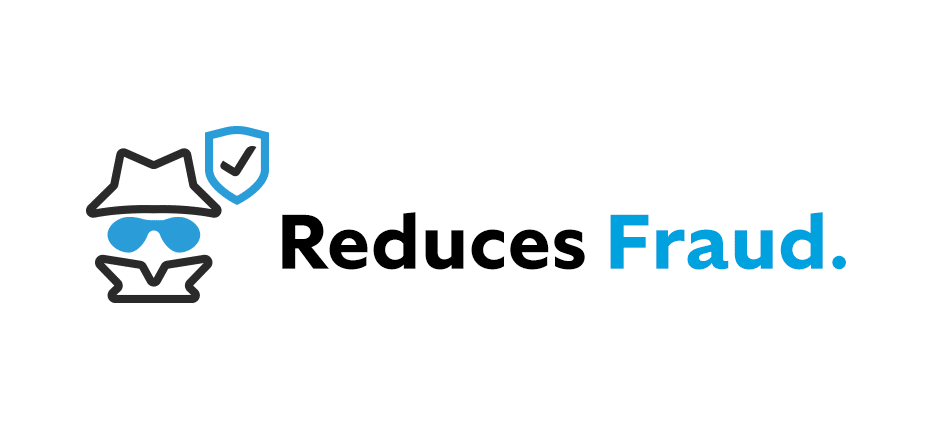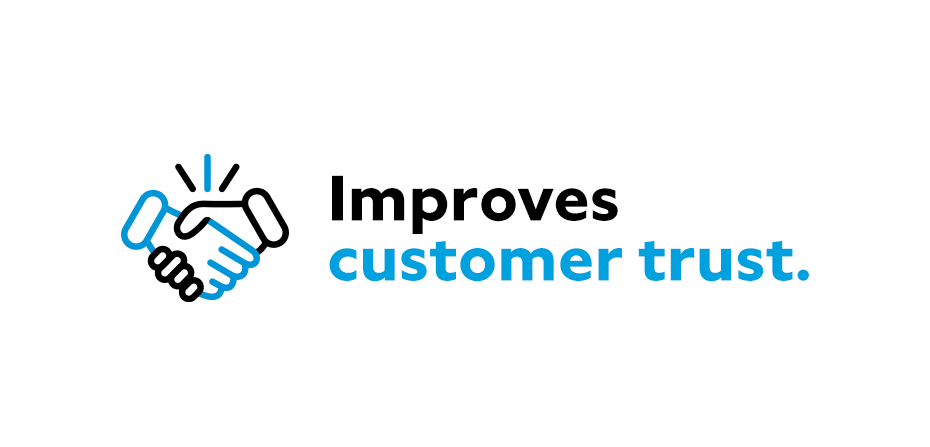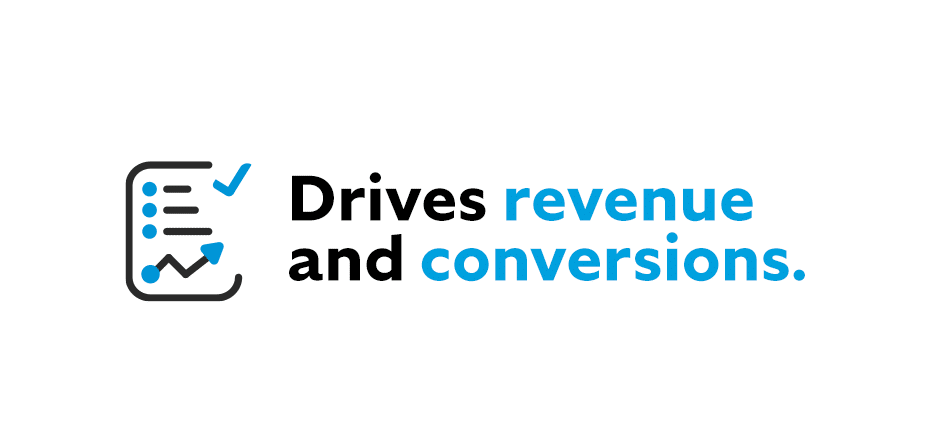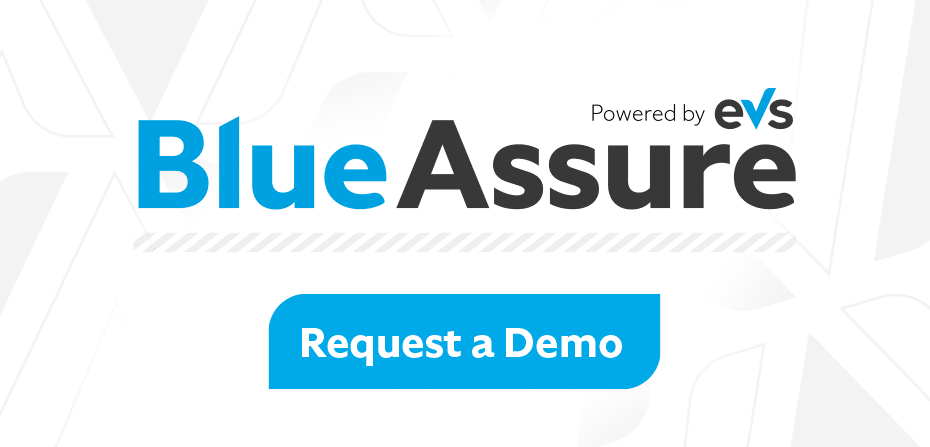Identity verification is crucial to any ecommerce business, primarily because businesses need to protect themselves from cyberattacks, fraud, financial loss, federal compliance fines, and damaged reputations. Attempting to build a business without investing in an electronic verification system with dynamic knowledge-based authentication is akin to leaving your front door unlocked and simply hoping that intruders won’t walk in and help themselves to your possessions. Identity verification encompasses so much more than protecting your company from cybercriminals: it also means protecting the trust, identities, and finances of your customers while streamlining their digital transaction experiences.
In an increasingly digital-first world, consumers can do everything online, from making high-risk financial transactions and applying for mortgages to buying groceries and participating in online gaming. Online transactions have become so frequent that they are now an indispensable component of global ecommerce. In 2021, global consumers spent $5.2 trillion in ecommerce purchases, with an increase to $5.7 trillion in 2022 and a predicted $8.1 trillion by 2026. Yet this greater convenience also brings greater risk of identity theft and other fraudulent activity. Companies need to be certain they aren’t doing business with potential criminals, and consumers need to be sure their data and financial accounts are secure.
The Benefits of Electronic Identity Verification
Whether your company regularly onboards customers, merchants, or vendors, identity verification should be a top priority to maintain trust, safety, and compliance. Integrating a robust electronic verification system that helps your customers move seamlessly from decision to purchase offers multiple benefits:
1. Reduces fraud. With criminal activity on the rise and fraudsters developing more and more sophisticated digital attack methods, businesses need to be vigilant. By flagging high-risk individuals and transactions, a risk-based solution lets companies funnel the most rigorous verification efforts toward more hazardous transactions without alienating honest customers who are simply trying to make legitimate online transactions. 
2. Improves customer trust. By applying risk-based verification measures like two-step verification or Dynamic Knowledge-Based Authentication, companies can that adjust their verification process to match individual interactions. When customers experience the ease and safety of making purchases with your business, their trust in your company will grow and they’ll feel more confident completing their transaction knowing their data is safe. 
3. Drives revenue and conversions. Because low-risk customers are required to go through fewer steps to prove their identities, they are far less likely to abandon the checkout process and complete their transactions. Simply put, smoother UX drives brand loyalty and repeat purchases. 
The Challenges of Electronic Identity Verification
Deciphering the identity verification landscape can be challenging. Customer onboarding requirements can vary between jurisdictions, types of transactions, and customer profiles, which can make choosing an electronic verification system that fits the needs of your business quite difficult. Additionally, not all types of customers are onboarded in the same way, which means companies need a system that can be customized to fit their needs.
Some companies may be afraid of integrating a verification system into their existing platforms. Still other companies shy away from electronic verification because they fear that a lengthy identity verification process could frustrate and turn away consumers. Even determining whether your company needs an identity verification system at all can be complicated. Banks and other financial institutions are clearly bound by federal Know Your Customer (KYC) regulations and must verify the identity and associated risks of every individual they do business with, but non-regulated businesses may not understand that they also need to apply KYC procedures to prevent fraud and avoid financial loss.
Regardless of industry or size, every company is at risk of cyberattacks and will always need a certain level of electronic identity verification to protect themselves and their consumers from potential fraud. So how can your business protect itself and its customers while also streamlining the customer journey and improving conversion rates?
The Solution: Risk-Based Electronic Verification Solutions
Asking customers to jump through endless identity verification hoops just to make a purchase is a surefire way to lose customers, but too few requirements may leave consumers suspicious and untrusting in the security of the organization. The solution lies in integrating a risk-based electronic verification system that can improve customer trust, reduce fraud, and drive revenue.
Risk-based electronic verification systems can be adjusted to meet a company’s specific ecommerce needs and tailored to case-specific transactions. For instance, a small transaction may only require basic identity and credit card verification, which takes mere seconds and can be processed before a customer even realizes verification has taken place. However, an individual trying to purchase a luxury product or obtain a large loan will automatically be flagged for more extensive verification.
EVS lets you customize your identity verification system to meet your needs.
To help you integrate risk management and compliance in a way that makes sense for your company, EVS created AssureKBA, our Dynamic, Knowledge-Based Authentication (DKBA) product. AssureKBA is a risk-based electronic verification system that easily integrates with your existing platforms, saving your company time and money. AssureKBA delivers frictionless onboarding by quickly and accurately authenticating individuals through a series of challenging multiple-choice questions that provide greater customer privacy than static security questions. One of the most accurate and reliable DKBA solutions available, AssureKBA isn’t reliant on credit history, so even thin-file and unbanked individuals can be asked questions. Best of all, AssureKBA lets you layer, tailor, and scale identity verification products to create a bespoke solution to prevent fraud while driving revenue and conversions.
 If you’re not sure which product is the best fit for your business, EVS offers a full suite of modular, intelligent identity verification products within the intuitive BlueAssure cloud platform. Since BlueAssure offers seamless API integration and customizable controls, companies can ensure seamless onboarding and transactions while also preventing fraud. You might choose to start with a single product, such as AssureKYC, for cost-efficient Know Your Customer compliance, or you could layer multiple products for a more robust electronic verification solution that doesn’t add unnecessary friction.
If you’re not sure which product is the best fit for your business, EVS offers a full suite of modular, intelligent identity verification products within the intuitive BlueAssure cloud platform. Since BlueAssure offers seamless API integration and customizable controls, companies can ensure seamless onboarding and transactions while also preventing fraud. You might choose to start with a single product, such as AssureKYC, for cost-efficient Know Your Customer compliance, or you could layer multiple products for a more robust electronic verification solution that doesn’t add unnecessary friction.
Take the first step toward optimizing your customer journey with seamless identity verification. Reach out to EVS today to discover how our electronic verification products can boost your conversion rates and enhance your user experience.